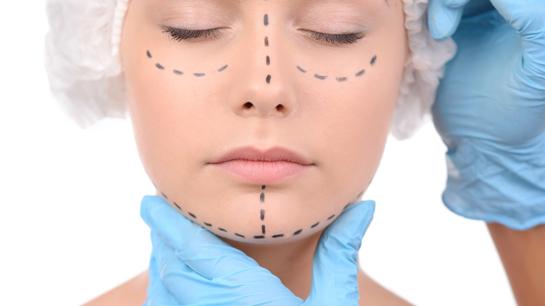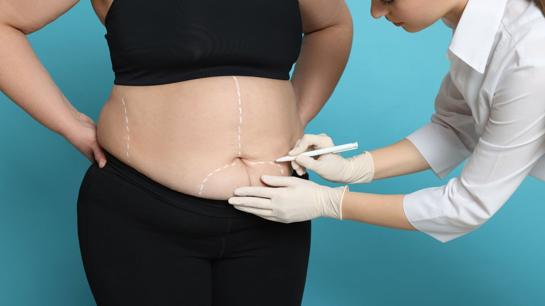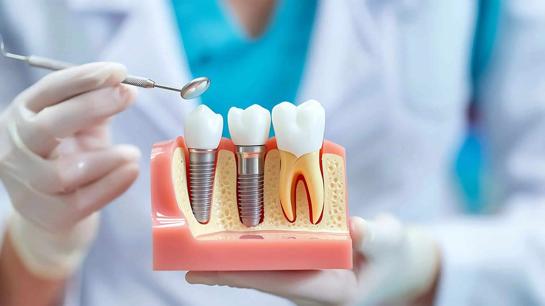Dental Implants Abroad
Curious about dental implants abroad? This honest guide covers who chooses dental implants overseas, costs, top destinations, specialist clinics, safety tips, process, expected results, and what to know before embracing dental tourism for your smile.
Why Are People Talking About Dental Implants Abroad?
It’s hard to miss, isn’t it? Open your news feed, and there it is—a new article about dental tourism. Someone’s uncle flies out for dental implants, comes back smiling (literally), and suddenly, everyone’s asking if going abroad for teeth work is seriously worth it. Here’s the thing: for most people, the search doesn’t start as a “vacation with a side of dental surgery.” It’s about tackling the one thing nobody wants to admit: major dental care in the US, UK, or Canada can be mind-bogglingly expensive, especially for implants.
Then there’s time. Some folks have been on a waitlist or saving up for years. For others, it’s just the disappointment of patchwork fixes that never really worked. Dental implants abroad start feeling less “adventurous” and more like a practical, even logical, solution.
Dental Implants—The Basics (With No Jargon)
Let’s keep this simple. Dental implants replace missing or unsalvageable teeth with artificial roots—usually titanium posts—that fuse with your jawbone. Crowns, bridges, even full arches can go on top. They’re not quick fixes but real, functional substitutes that look and chew like the real deal.
Not everyone is a candidate off the bat—bone health, gums, and chronic medical conditions matter. But for many, they’re a shot at biting an apple or laughing without covering your mouth. So, why all the buzz about dental implants abroad?
Why Consider Dental Implants Abroad? Let’s Be Honest
Here’s where it gets real. The stories start with savings—no sense sugarcoating it. Dental implants abroad can cost half, sometimes a third, of what you’d pay at home. That kind of gap changes everything. And it’s not just numbers:
- Shorter wait times: You decide when, instead of waiting months (or years).
- Comprehensive care: Many dental tourism clinics streamline the entire process—consult, scans, surgery, and aftercare in days versus weeks.
- Modern technology: Some clinics abroad roll out equipment or techniques that aren’t yet standard everywhere else.
- Privacy and comfort: Ever feel odd navigating a dozen appointments across town? Abroad, it’s one team, one place, one “big reset.”
- Travel as a bonus, not the goal: Sure, you might enjoy a beach walk or city stroll, but for most, the real appeal is putting dental care at the center of the trip, not the other way around.
But. All that said, nobody should pretend it’s risk-free or right for everyone.
What Makes Up a "Good" Dental Implants Abroad Center?
- Implantology specialization: Not just “general dentistry,” but an in-house team focusing daily on implants, bone grafts, and prosthetics.
- Onsite 3D imaging, digital scans, and advanced sterilization.
- Multilingual staff and seamless translation—so “lost in translation” doesn’t happen while you’re numbed up.
- Staggered scheduling: Many clinics serving dental tourism schedules first visits for scans and prep, the procedure during the same or next trip, and follow-ups either with them or an approved partner at home.
- Proper anesthesia and pain management: Not every system globally works the same, so be direct—ask about it up front.
Often, clinics specializing in dental implants abroad are certified by national and sometimes international organizations—sometimes with patient stats, infection rates, and technology right on the paperwork (where you should see it).
The Team: Surgeons, Technicians, Support Crew
What might surprise you: the best clinics run like a tight ship, not a solo practice. Here’s what you should expect:
- Lead implantologist: Experienced, with advanced training in oral surgery or prosthodontics.
- Surgical assistants: Trained to international infection protocols, not just “dental helpers.”
- Lab techs on-site: Some clinics have their own dental prosthetics lab—your crown is prepped and adjusted right there.
- Aftercare and patient coordinators: They’re the “bridge” between you, the surgical team, and the logistics of being in a new city or country.
Don’t be shy about asking for credentials, experience, and numbers. It’s common for people to feel reassured by specific answers—so don’t settle for generalities.
Accreditation, Certification, and What Actually Matters
- Clear membership in reputable dental associations
- Infection-control protocols published and followed
- Transparent data on patient satisfaction, complications, and implant success rates (most clinics average 95–98% after a year)
- Named materials and implant systems—they should tell you which brands and what warranty is offered
“Show me, don’t just tell me”—that’s the gold standard.
Equipment and Technologies: The Stuff Under the Hood
- CBCT 3D scanning: Not just x-rays, but full surgical planning and modeling before a drill even spins.
- CAD/CAM restoration: Custom prosthetics, fit and milled right in the clinic.
- Sterile rooms: Procedures in hospital-grade environments, not an “expanded” waiting area.
- Digital anesthesia monitoring: For your safety, especially for multi-implant cases.
- Minimally invasive implant systems: Which can mean less swelling, less pain, and (sometimes) much faster healing.
If you’re into the details, let your surgeon walk you through the toys and tech—it can actually be reassuring.
Diagnostic and Infrastructure Details
Here’s the thing—diagnostics make or break a smooth experience with dental implants abroad.
- Pre-op: Onsite cone beam CT, full oral exams, sometimes even bloodwork (especially if you have chronic diseases or are over 60).
- During: Digital visualization–your new teeth planned in 3D side-by-side with you.
- After: Built-in post-op visits, wound care, and—big point—an emergency plan if something feels wrong after your return home.
- Infrastructure: Private or double rooms, quick issue response, sometimes a dedicated “international desk” just for overseas patients.
Some centers even use WhatsApp or similar tools for follow-up, which is quietly reassuring in those anxious first days.
The Numbers: How Do Dental Implants Abroad Stack Up?
| Home (USA/UK/Canada) | Dental Implants Abroad | |
|---|---|---|
| Single implant (w/ crown) | $3,500–$6,000 | $800–$2,500 |
| Full arch (“All-on-4”) | $18,000–$35,000 | $5,500–$13,000 |
| Diagnostics & planning | Often extra | Usually included |
| Hotel/recovery | Extra | Sometimes included |
| Wait time | Weeks–months | Days–2 weeks |
Ask directly what’s included: materials, follow-up, medication, emergency care, guarantee.
The “How It Feels” Angle: What’s the Real Process Like?
It’s common for people to feel reassured by honest feedback. Typical rhythm for dental tourism:
- Initial email/video consult: You send scans, photos, background. Coordinator walks through expectations, timelines, cost.
- Arrival & first steps: Day one—exam, new scans, face-to-face consult.
- Surgery day: For standard implants, you’ll likely be in the chair 1–2 hours.
- Recovery: Some swelling, mild ache, pressure, but most people are surprised by how manageable it is. Full-arch work is tougher but planned for.
- Follow-up: A week (sometimes less) for stitches, a check, and your temporary crown or bridge.
- Second trip: 3–6 months later, after bone integration is checked, you come back for the permanent versions.
And yes, some clinics offer “immediate load” implants—the kind where you leave with teeth in a day—but it’s only right for certain cases.
Results, Longevity, and What’s Actually Realistic
- Integration rate: 95–98% at one year is common for bone-healthy, non-smoking adults.
- Long-term survivability: Most last 10–20 years—or more—when care advice is followed.
- Risks: Infection, nerve damage, or implant rejection—rare, but possible. Reputable clinics will walk you through every “what if” before you land.
What catches some people off guard? That you’ll still need routine cleaning and regular, honest check-ins with your home dentist. There’s no “set and forget,” no matter what country your treatment started in.
Who Should—and Shouldn’t—Consider Dental Implants Abroad?
Great candidates:
- Patients with well-managed chronic health, non-smokers, and healthy jaws/gums.
- Budget-conscious people willing to research, double-check clinics, and follow post-op steps.
- Those able to plan for at least two trips, or work with a local dentist for follow-up.
Those who should pause:
- Patients with untreated dental or gum disease, very little jawbone, or serious health risks.
- Anyone unable to secure reliable aftercare at home.
- People looking for “quick” or “miracle” solutions instead of proven, phased care.
Any clinic worth its salt will tell you if you’re not the right fit right now—and help you get there, if you want to wait and prepare.
What to Ask Before You Commit
- Are pre-op diagnostics included? Will you get scans to keep?
- Will your lead dentist be the one doing surgery, or delegating?
- Which implant brands and materials are used? What’s the guarantee?
- Who handles emergencies? 24/7? For how long after?
- What happens if a procedure needs revising—do you need another flight, or can you go local?
Direct, open answers build more trust than any glossy brochure.
When It’s More Than “Just Teeth”
Dental tourism sometimes gets painted as frivolous. But for adults juggling self-confidence, chewing, and the sometimes-embarrassing minutiae of daily life, good dental implants are life-changing. Abroad, for many, a sense of control returns—new smile, new choices, even a new routine.
Yes, you’ll still have to floss. You’ll worry about that first bite, that first hot mug of coffee. But most patients say—even years later—that the relief, the quiet pride in a restored smile, is worth every step.
The Takeaway: Do the Homework, Take Your Time
Dental implants abroad are not a hack. They’re not “cheap and easy.” But with honest planning, open questions, and respect for real expertise, they can be an achievable, even transformative, solution for many people around the world.
Take as much time as you need. Weigh every answer. A new tooth isn’t just about looks—it’s about living on your terms, wherever that journey takes you.





















